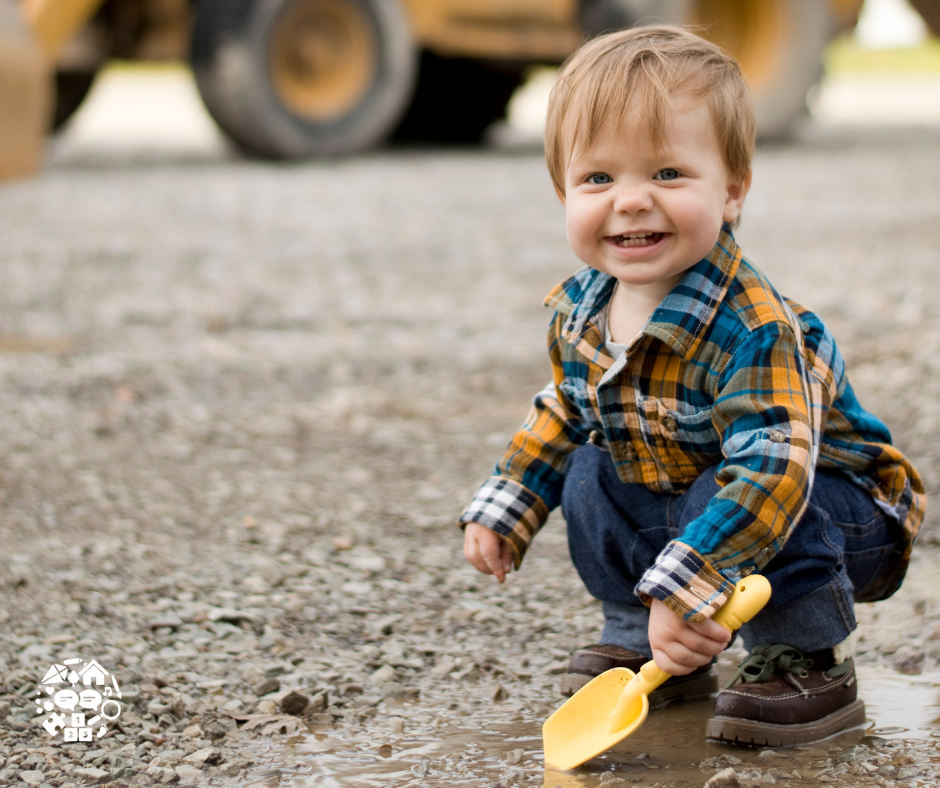- 'Iechyd da' - A Healthier Wales – cutting NHS waiting times, including for mental health; improving access to social care and services for women's health
- Green jobs and growth – creating green jobs that tackle the climate crisis and restore nature, while making families better off; accelerating planning decisions to grow the Welsh economy
- Opportunity for every family – boosting standards in schools and colleges and providing more homes for social rent, ensuring every family has the chance to succeed
- Connecting communities – transforming our railways and delivering a better bus network; fixing our roads and empowering local communities to make choices on 20mph
These four targets clearly showcase the value in which the Welsh Government places on equality of opportunity and social justice. Good quality childcare lays the foundations for a strong society and is crucial in helping the Welsh Government ensure these values are supported in our future generations. The role childcare plays in our society is incredibly valuable, and it is important we recognise how it underpins the direction of most Governmental policy. Therefore, this blog will showcase how further support and investment in childcare is crucial in helping the Welsh Government achieve three of the four priorities, 'Iechyd da' - A Healthier Wales, an opportunity for every family, and connecting communities.

According to the World Health Organisation, "Early childhood is a period of rapid physical and cognitive development and a time during which a child's habits are formed and family lifestyle habits are open to changes and adaptations"[1]. Movement and physical activity is a crucial part of this process, helping us lead healthier and happier lives. If we move from an early age, we are much more likely to continue on an active lifestyle through our lives. Start Active, Stay Active is the key message endorsed by all four UK Chief Medical Officers, and helps counteract the "silent killer" of inactivity [2].
This is a vital message in a world where issues such as "increased motorised transportation and, poorer walkability" are having hugely negative impact on children's ability to undertake movement and physical activity in a safe environment [3]. "Uninterrupted sitting" during adulthood is associated with negative health outcomes, these negative health outcomes [4] increase patient flow in our health service, so addressing them is of course of upmost importance.
If we are to realise the First Ministers ambitions around health and social care, especially around cutting waiting times and easing the pressure on services, addressing the problems at their core, is key. We know that a healthy and active lifestyle improves health outcomes, so by supporting childcare settings deliver movement and physical activity through play as part of their everyday practice, the importance of physical activity can be realised from an early age. Play is a vitally important form of movement in the early years, "defined as being for its own sake (without a specific goal), voluntary, enjoyed by participants and imaginative. It can be solitary or social, and with or without objects [5]. Young children acquire and consolidate developmental skills through playful interactions with people and objects". In order to maximise these positive outcomes, especially in the fairly short timeframe leading up to next Senedd elections in 2026, small policy changes which promote movement in the early years can be fairly straightforward.
For example, encouraging 'movement minded' practice could be achieved by financial assistance provided to settings who wish purchase items which promote physical activity in children. Furthermore, government guidance covering the importance of movement, and how childcare can be adapted to harnessing more of a focus on movement would be a crucial step. The overall benefit of small policy changes in this regard would be incredibly profound, tackling many of the issues faced by our health service at their core, and in turn helping achieve the First Ministers vision of 'Iechyd da'.
[1] Guidelines on physical activity, sedentary behaviour and sleep for children under 5 years of age (who.int)
[2] UK Chief Medical Officers' Physical Activity Guidelines
[3] Physical activity, sedentary behaviour, and sleep: movement behaviours in early life
[4] Prospective relationship of physical activity and sedentary time with cardiometabolic risk in children
[5] Guidelines on physical activity, sedentary behaviour and sleep for children under 5 years of age

– boosting standards in schools and colleges
The First Ministers priority of providing an opportunity for every family is a bold and progressive vision for our education system, creating the space for the Welsh Government's equality targets to be realised, improving on the Welsh PISA results. We know, from international evidence, that focus and funding on the early years paves the way increased attainment in educational standards in later schooling. Estonia is the prime example of this. The highest ranked European country in the latest results [6], Estonia have taken huge strides over the last decade. Whilst analysis highlights the success of all parts of the Estonian system, one area that has received a significant amount of attention, has been Estonia's early years provision.
In Estonia, children between the ages of 18 months and 7 years old attend special education institutions known as 'kindergartens'. This pre-school experience is not only childcare, but part of a wider learning framework, with a methodological approach taken to activities which pupils in Wales may undertake in their early schooling [7]. The key difference being that these activities occur in a much more of a relaxed and proactive manner, with kids encouraged to play and move whilst learning takes place. Most children entering first grade are able to read and write as a result [8]. 94% of 4–7-year-olds participate in these pre-school activities in Estonia [9], impressive for a system where attendance at these settings is not obligatory [10].
Furthermore, Estonian childcare is high quality, due to the fact that a higher amount of degree level practitioners are hired into the sector [11], as well as increased salaries provided to childcare staff [12] which has aligned them more closely with teacher salaries. This fact reflects the value placed on the power of early years provision on the life chances of children, evidenced by their superb PISA results.
Estonia is a prime example of how a change in conception around early years provision can be of huge benefit to our education system in the longer term. Early years lays the foundations for which the building blocks of schooling are placed. Without that foundation, the true potential of schooling cannot be realised. Short term steps can be made towards this vision in the lead up to the next Senedd election, but we accept that a wholesale change of this magnitude would take a decade to deliver. However, there is no time like the present to begin our journey on this change. We are encouraged to see the First Minister's appointment of a Minister for Children and Social Care, and we hope this portfolio will be front and centre of Welsh Government policies looking to the long term.
[6] PISA Scores by Country 2024 (worldpopulationreview.com)
[7] https://www.educationestonia.org/about-education-system/
[8] https://www.educationestonia.org/about-education-system/
[9] https://www.educationestonia.org/about-education-system/
[10] https://eurydice.eacea.ec.europa.eu/national-education-systems/estonia/early-childhood-education-and-care
[11] https://www.theguardian.com/education/2022/nov/05/estonia-focus-early-year-innovative-kindergarten-highest-performer-international-education-ranking
[12]NCEE Travels: How Estonia Is Supporting Its Youngest Learners - NCEE

Communities and childcare go hand in hand. Often, childcare settings are a focal point of a local community, accessed by every child and their caregiver, no matter their background. Childcare settings bring people together who previously may have kept worlds apart, breaking down barriers, giving children have the chance to play, and develop lifelong friendships. Furthermore, parents are provided with the chance to access high quality support and advice to help in their understanding of childcare, learning good practice not only from providers, but also other parents who may be happy to share some parenting tips and tricks. Their value in our communities is such that, without them, communities become disconnected, disjointed, and disenfranchised.
The Welsh Government's Flying Start programme is a great example of a policy designed to put childcare at the front and centre of the community, with settings being seen as an “important source of support” for children and families [13]. However, there are a multiplicity of issues that exist with the role out of Flying Start, such as the postcode nature of the support provided, as outlined by a recent Pregnant then Screwed report [14]. Further Welsh Government support for the Flying Start programme would prove a huge benefit to this aspect of the First Minister's priorities, harnessing the power of connected communities to provide all children in Wales with equality of opportunity, and improving access and support for lower income families.
On top of this, analysis conducted by the Institute of Fiscal Studies (IFS) indicates that children who lived within two and a half kilometres of a Sure Start centre for their first five years performed 0.8 grades better in their GCSE's, with significantly positive impacts on children from low income and non-white backgrounds [15]. Statistics like this show that investment in childcare provision can have a positive impact on our local communities, equalising opportunity for success both in the short and long term. Increases in funding for childcare provision will deepen this benefit to more children and families from marginalised backgrounds, meaning the social justice element of childcare is truly realised.
[13] Is the Welsh Government giving a ‘Flying Start’ to all children who need it? (senedd.wales)
[14] Family Childcare Promise : The effects of introducing a cap on childcare costs for families with 0-4 year-old children in Wales
[15] IFS report: Sure Start Centres boost child development
In conclusion, the ambitious goals set by the First Minister which will determine policy formation for the next 18 months are positive, and give the indication that equality of opportunity remain at the epicentre of Welsh Government policy. This blog article has aimed to show how early years underpins three of the four priorities outlined by the First Minister, laying the foundations for the short- and longer-term policy goals.
Whilst the Welsh Government have made strides in the field of early years provision with the maintenance of the flying start programme, the sector remains underfunded, undervalued and often overlooked by wider Welsh Government policies. We look forward to working with the Welsh Government over the coming 18 months to help them realise their goals, and ensuring that the importance of early years is reflected in Welsh Government policies.
Blog by Leo Holmes, Head of Policy and Advocacy for Early Years Wales

